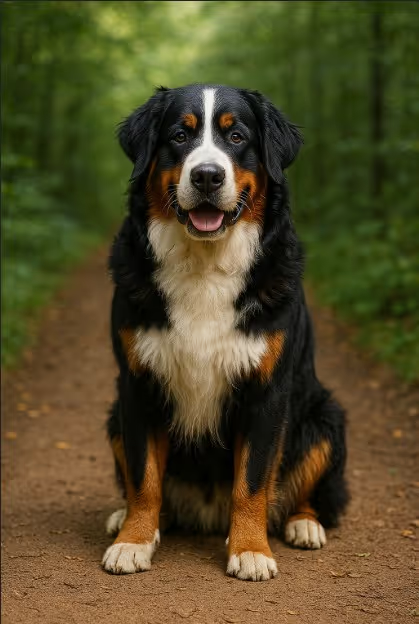The Bernese Mountain Dog is a large, affectionate, and strikingly beautiful working breed known for its tri-colored coat, gentle temperament, and versatility. Originally bred in Switzerland to drive cattle, pull carts, and serve as a loyal farm companion, the “Berner” is a devoted family dog who thrives on companionship, outdoor activity, and having a job to do.

The Bernese Mountain Dog originates from the Swiss Alps, where it was developed as one of four Swiss mountain dog breeds. Used primarily in the Canton of Bern, Berners served farmers by driving cattle, guarding property, and pulling heavy loads to market. Their heritage likely includes large Roman mastiff-type dogs brought to Switzerland over 2,000 years ago. Recognized by the Swiss Kennel Club in 1907 and the American Kennel Club in 1937, the Berner remains a beloved working dog and family companion.
A large, sturdy, and well-balanced dog with a thick double coat.
Moderate to high grooming needs due to heavy shedding.
Moderate exercise needs for a working breed.
Gentle, intelligent, and eager to please.
Balanced diet supports their large size and joint health.
Prone to several hereditary conditions.
Widely available through reputable breeders and working dog rescues.
Are Bernese Mountain Dogs good family dogs?
Yes, they are affectionate, gentle, and excellent with children.
Do they bark a lot?
They may bark to alert but are not excessive barkers.
Do they shed much?
Yes, heavily, especially during seasonal coat changes.
Are they easy to train?
Yes, they are intelligent and eager to please.
Do they get along with other pets?
Yes, with proper socialization.
Are they hypoallergenic?
No.
How much exercise do they need?
About 45–60 minutes daily.